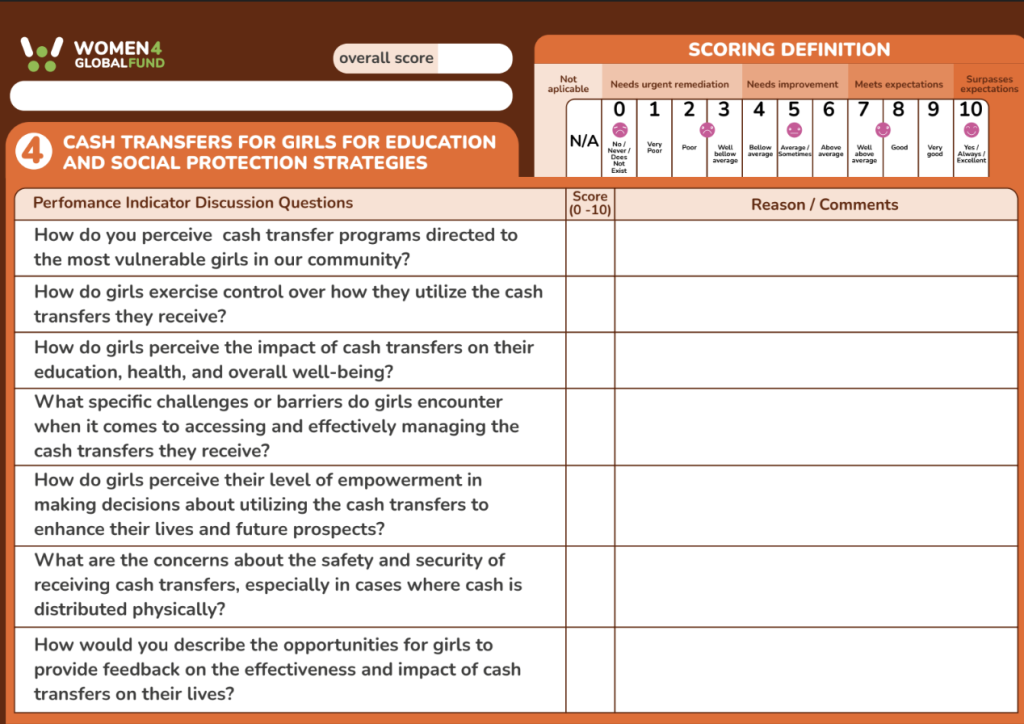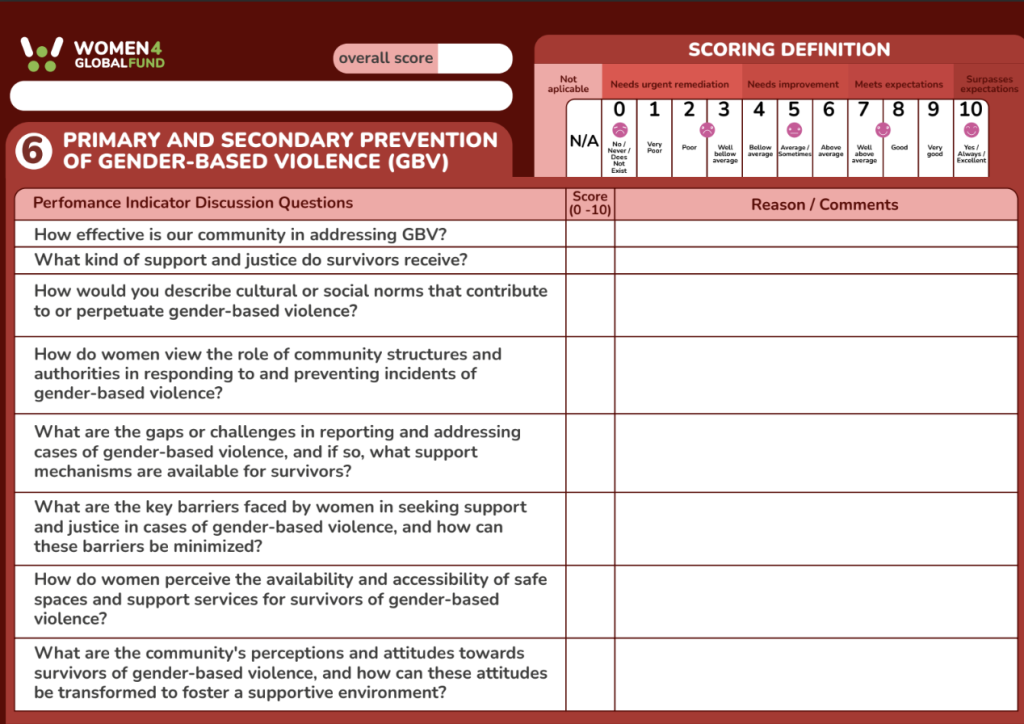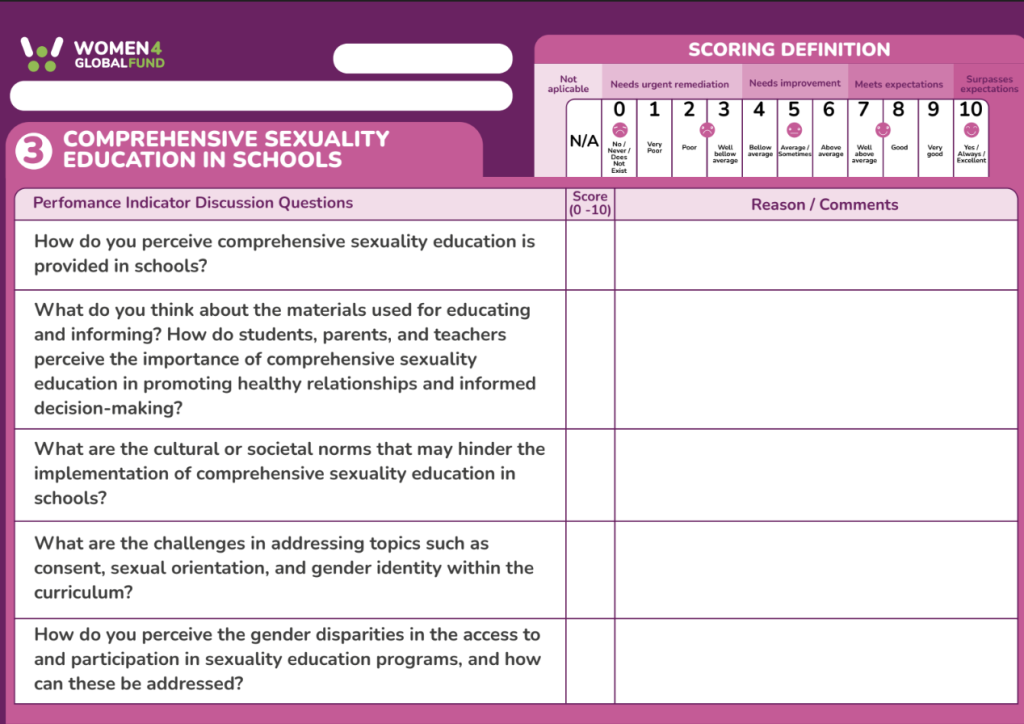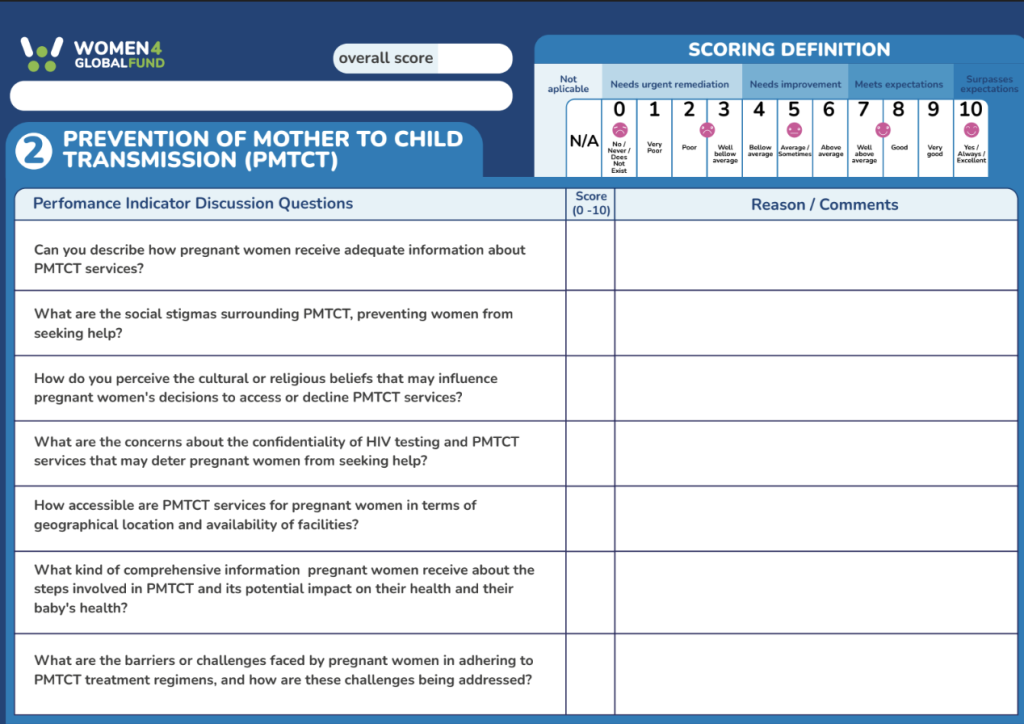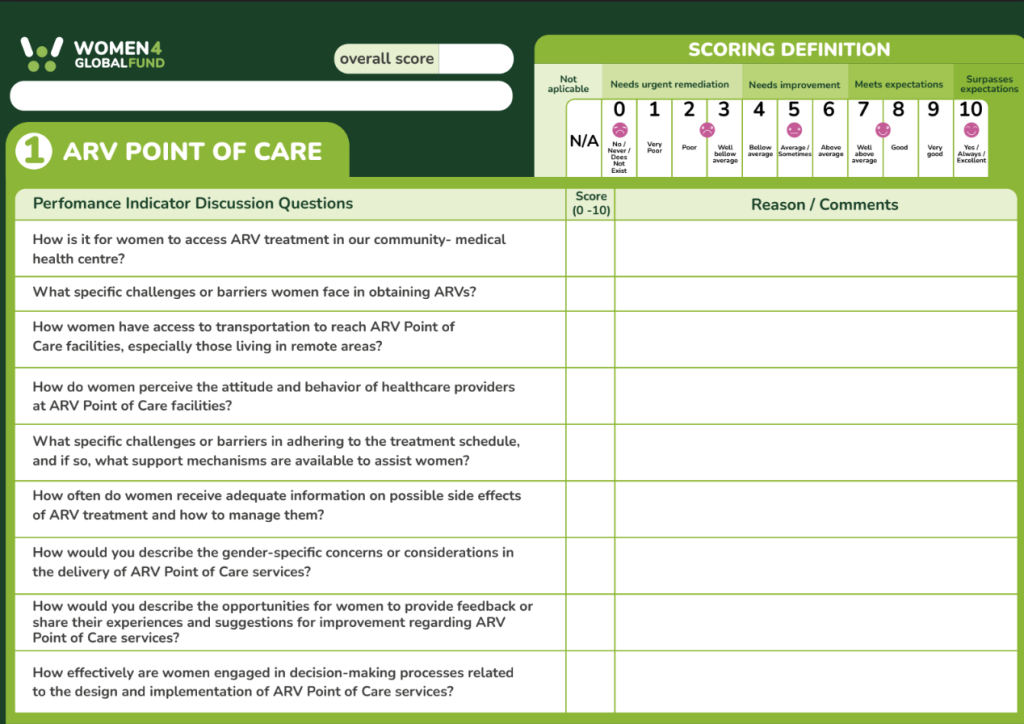Communities possess crucial knowledge of gaps in health services and can make recommendations to improve, monitor, and ensure women’s diverse needs are met in Global Fund programmes.
CLM processes have proven effective for gender advocacy, aiming to improve health services for girls, adolescents and young women in their diversity. In Cameroon, the community-led monitoring of care services for gender-based violence survivors showed that over half of the women didn’t know about all available care services. Additionally, service facilities were not located in their communities, and the services were inadequate for those who could access them, the services were inadequate. Meanwhile, In Tanzania, the CLM identified that while screening for cervical cancer was affordable, treatment for advanced disease and travel expenses to hospitals were unaffordable for most women. Both processes suggested improving information dissemination to reach all women and factoring in women’s costs to access services.
We acknowledge that gathering information to identify gender gaps, organising data, and formulating evidence-based recommendations can be quite taxing.
For that reason, we have developed the Community Led-Monitoring ScoreCards.
A scorecard for Community-Led Monitoring is a tool that allows community members to systematically assess and track the performance of specific activities, programmes, or services. It typically includes qualitative questions and indicators that help measure the programme’s impact, effectiveness, and quality. The scorecard is a way to collect and organise data that can be used for analysis, advocacy, and decision-making in the Global Fund programmes.

